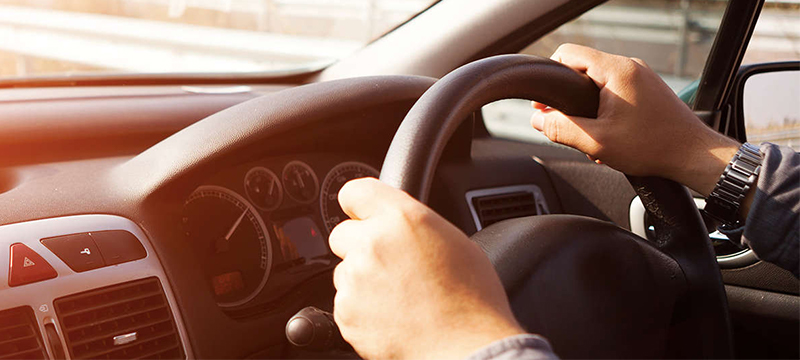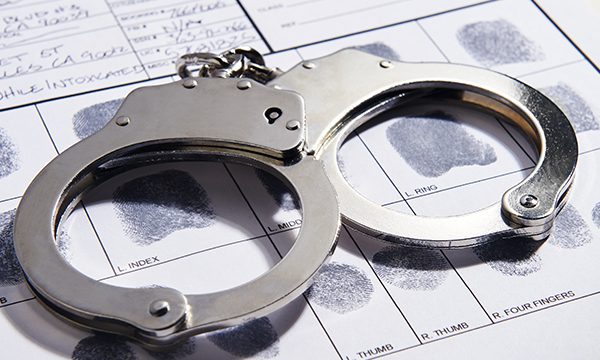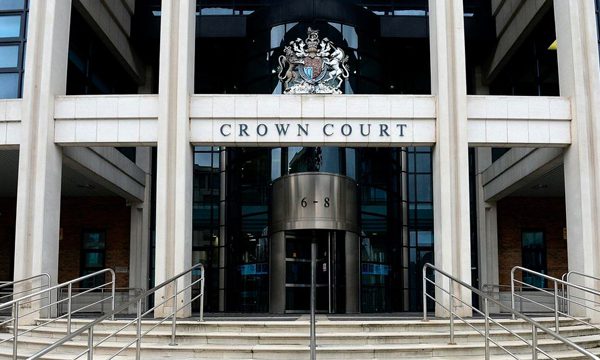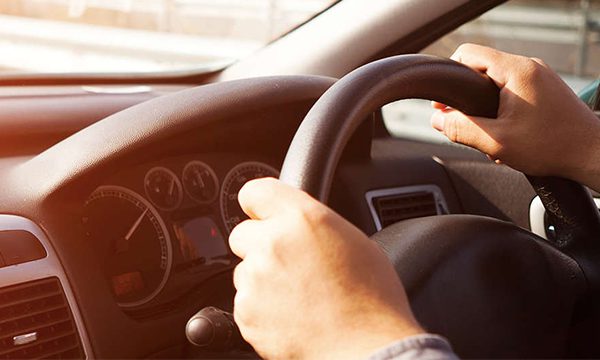
Criminal Defence Solicitors for Driving & Motor Vehicle Offences
If you have been stopped by the police for a road traffic offence, or have been subsequently charged, get in touch with our motoring offence solicitors as soon as possible. Speaking to the police, informally or under caution can later harm your defence if you are not prepared and subsequently charged. Seeking legal advice does not signify your guilt. Instead, it allows you to be informed before entering questioning. Leonard Solicitors is recommended as the top Motoring Offence Solicitors in Southampton by ThreeBestRated.co.uk, and we have 20 years of experience mitigating road traffic penalties.
We have a duty solicitor and other police station accredited representatives on hand 7 days a week. Call the office on 023 8023 4433 during office hours or, if you are at the police station, ask for Sarah Barnard, our Criminal Defence and Duty Solicitor.
Covering Legal Expenses
Police station interviews and advice is free and is covered under our duty solicitor contract, provided that there is a police officer present. We also provide legal aid under our contract with the Legal Aid Agency; however, this will only be awarded if you are charged with a custodial sentence following a road traffic offence. If legal aid is not available, we can help you on a fixed fee or hourly rate basis, whichever suits you best. Of course, we will explore these options with you upon your initial discussion with our experts.
General Information around Motoring & Driving Offences
Losing your driving license is a daunting prospect and can have possible repercussions if you rely on driving in your career. For most people, the only time they have committed a criminal offence is when they receive a summons from a Magistrates Court for a road traffic crime. With that said, a staggering 2.4 million people in the UK committed a motoring offence in 2017. In some cases, the driver doesn’t realise that they have even committed an offence, or otherwise admit that they acted in the heat of the moment and made a poor decision.
Road traffic law is complex and is frequently changing. The penalties for motoring and driving offences can vary, depending on the severity and type of offence you have committed. The consequences for committing a motoring offence can be serious but mostly means that you may lose your driving licence. Provided that you get legal advice or representation from a Motoring Offence Solicitor, there are ways to reduce the punishment.
We have experience helping drivers charged with the following motoring and driving offences:
- Driving under the influence of alcohol and drugs
- Dangerous driving
- Speeding
- Using a mobile phone while driving
- Driving without insurance
- Failing to supply a specimen
Typically, the most common road traffic offences that carry life-changing sentences are drink driving, speeding (totting up points), and driving without insurance. All of these can result in losing your license and some, like drink/drug driving, can warrant a prison sentence.
Speeding is the most common driving offence. Most people are given 3 points on their licence and a fine. Although this sounds like an acceptable slap on the wrist, can accumulate with further offences, commonly called totting up points. A total of 142,275 people between 2017 and 2021 were banned from driving after accruing a licence-losing volume of points.
If you rely on your driving licence for work, and losing your licence will result in exceptional hardship, we may be able to argue this in your defence. Delivering this argument requires a specialist skill set so you must seek legal advice if you want to increase the chances of retaining your licence.
We receive more drink driving enquiries than any other. Most people are not even aware that they were over the limit, others made a poor decision fuelled by their alcohol consumption. The police have the right to ask anyone who is driving, attempting to drive or in charge of a vehicle who they suspect has been drinking to take a breath test.
Sentences are based on the level of alcohol found from testing; however, the Court will also consider adjustments based on any aggravating or mitigating factors. This is where our motoring offence solicitors will aim to mitigate these factors as much as possible. Examples of mitigating factors that may reduce the severity of the sentence are:
- no previous convictions or relevant/recent convictions
- if it was a genuine emergency
- if the driver’s drinks had been spiked
- if the distance driven was very short
- if the driver showed remorse or was of good character
- if the driver has a serious medical condition, mental disorder or learning disability
- if the driver is the sole or primary carer for dependent relatives
Pleading guilty may also reduce the sentence, although not a reduced disqualification period.
Failing to take a roadside or police station test
Refusing to take a drink/drug test on the roadside or at the police station is an automatic criminal offence. It is always best to comply with the police when being asked to provide a breath sample. Even if you know that you are over the limit, failing to comply with the police can later harm your defence in Court.
Driving without insurance is another common offence in road traffic incidents. Even if you have insurance but are found to be driving with no valid MOT or no driving licence, this will
Of course, a short period without a valid MOT certificate, while you are on the way to an appointment, will not apply to breaking the law, provided you can show that you have an appointment made. But, if you knowingly continue to drive without a valid driving licence, insurance and/or an MOT certificate, this can later result in a ban and/or a fine if you are convicted.
However, allowances can be made in these circumstances if you can show that you had special reasons. Often, these will involve being in an emergency of some kind, such as driving a person to the hospital which otherwise could compromise their chances of staying alive. If you have special reasons, our motoring offence solicitors will explore these and build your defence.
Appeals
If you were convicted at the Magistrates Court, your appeal will generally be made in the Crown Court. The appeal is presented to a Crown Court Judge with two Magistrates and no jury. In certain limited circumstances, an appeal from the Magistrates Court can be made to the High Court. An appeal to the Crown Court must generally be made within 21 days of the sentence. In some circumstances, this time limit can be extended.
If you were convicted at the Crown Court, your appeal is made to the Court of Appeal. An appeal to the Court of Appeal can only be pursued if you can establish that there was an error of law at the original Crown Court trial. An appeal to the Court of Appeal must generally be made within 28 days of conviction or sentence, whichever is being appealed. In some circumstances, this time limit can be extended. Where a Crown Court judge has made a sentencing error, this can be corrected by the Crown Court itself, within 56 days.
FAQ’s
Do I need a Solicitor?
This is of course, up to you. Road traffic law is a complicated area of law that requires expert knowledge. If your driving licence is at stake as a result of a road traffic crime, we would most definitely recommend seeking legal advice and representation from an expert motoring offence solicitor.
Who will deal with my case?
Your case will be handled by an experienced member of our Criminal Defence team. Usually, Motoring Offence cases are dealt with by Rosemary Calles, and Sarah Barnard, both of whom has over 20 years of experience helping drivers mitigate sentences from road traffic crime. You will be represented in court by either Gary Leonard or Sarah Barnard, both qualified solicitors who have helped hundreds of people remain on the road. The Criminal Defence team is supported by our trainee solicitor, Inna Ayrapetyan and paralegal, Asad Khan, who will take your details and any evidence that can be used in your defence.
I have been caught speeding. How do I avoid getting points on my licence?
If you have not done a Speed Awareness Course in the last three years, you can usually take this option to avoid receiving penalty points on your licence. However, if you were speeding 10% over the speed limit, plus 9mph, a Speed Awareness Course is unlikely to be available to you, and you may receive points on your licence. If this results in your licence being taken off of you, we will be able to help. There are various reasons why a person is speeding which can be argued in Court. Our motoring offence solicitors can guide you through your options, building your defence where available.
I have been caught drink/drug driving. What happens next?
If convicted, the minimum ban for drink/drug driving is 12 months. The ban can be longer, depending on how far over the limit you were. The court will consider previous convictions and other factors.
You may be offered to attend a drink/drug driving rehabilitation course, where your ban will be reduced by 25%.
In circumstances where you have had previous convictions within the last 10 years, the minimum ban is three years. However, you may be able to put forward a “special reasons plea”, which can reduce or avoid a ban altogether. Usually, these pleas are used when you were driving because of an emergency.
I have been caught using my mobile phone while driving. Will I get points on my licence?
As of February 2022, the minimum penalty for using a mobile phone whilst driving is 6 points and a £200 fine.
Under the totting up system, if you rack up 12 points within three years, you are at risk of a six-month ban, unless you can prove that this would cause you exceptional adversity.
For new drivers, reaching 6 points within the first two years of you passing your first driving test, the DVLA will revoke your licence, and you would need to pass your driving test again.
I have been caught driving without insurance. What happens next?
Usually, there is no defence for driving without insurance and the Court will issue you with a minimum of 6 points on your licence. However, there are various reasons for driving without insurance that can avoid you being prosecuted. You may be able to plea “special reasons” or it could be that your insurance cancelled your cover without your knowledge. Speak to one of our motoring offence solicitors to get advice.
FAQ’s
Do I need a Solicitor?
This is of course, up to you. Road traffic law is a complicated area of law that requires expert knowledge. If your driving licence is at stake as a result of a road traffic crime, we would most definitely recommend seeking legal advice and representation from an expert motoring offence solicitor.
Who will deal with my case?
Your case will be handled by an experienced member of our Criminal Defence team. Usually, Motoring Offence cases are dealt with by Rosemary Calles, and Sarah Barnard, both of whom has over 20 years of experience helping drivers mitigate sentences from road traffic crime. You will be represented in court by either Gary Leonard or Sarah Barnard, both qualified solicitors who have helped hundreds of people remain on the road. The Criminal Defence team is supported by our trainee solicitor, Inna Ayrapetyan and paralegal, Asad Khan, who will take your details and any evidence that can be used in your defence.
I have been caught speeding. How do I avoid getting points on my licence?
If you have not done a Speed Awareness Course in the last three years, you can usually take this option to avoid receiving penalty points on your licence. However, if you were speeding 10% over the speed limit, plus 9mph, a Speed Awareness Course is unlikely to be available to you, and you may receive points on your licence. If this results in your licence being taken off of you, we will be able to help. There are various reasons why a person is speeding which can be argued in Court. Our motoring offence solicitors can guide you through your options, building your defence where available.
I have been caught drink/drug driving. What happens next?
If convicted, the minimum ban for drink/drug driving is 12 months. The ban can be longer, depending on how far over the limit you were. The court will consider previous convictions and other factors.
You may be offered to attend a drink/drug driving rehabilitation course, where your ban will be reduced by 25%.
In circumstances where you have had previous convictions within the last 10 years, the minimum ban is three years. However, you may be able to put forward a “special reasons plea”, which can reduce or avoid a ban altogether. Usually, these pleas are used when you were driving because of an emergency.
I have been caught using my mobile phone while driving. Will I get points on my licence?
As of February 2022, the minimum penalty for using a mobile phone whilst driving is 6 points and a £200 fine.
Under the totting up system, if you rack up 12 points within three years, you are at risk of a six-month ban, unless you can prove that this would cause you exceptional adversity.
For new drivers, reaching 6 points within the first two years of you passing your first driving test, the DVLA will revoke your licence, and you would need to pass your driving test again.
I have been caught driving without insurance. What happens next?
Usually, there is no defence for driving without insurance and the Court will issue you with a minimum of 6 points on your licence. However, there are various reasons for driving without insurance that can avoid you being prosecuted. You may be able to plea “special reasons” or it could be that your insurance cancelled your cover without your knowledge. Speak to one of our motoring offence solicitors to get advice.









